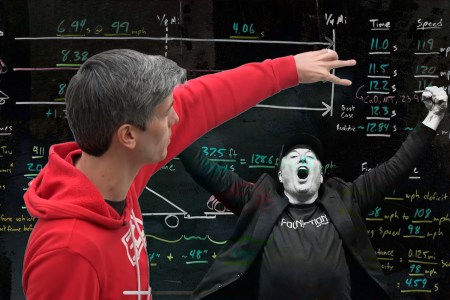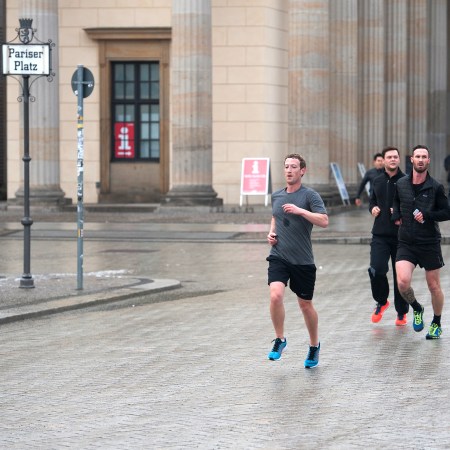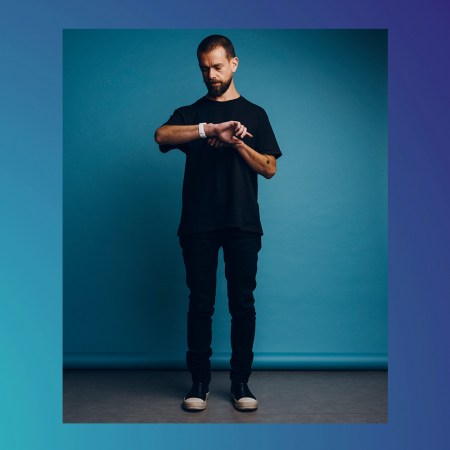In an early video interview with Jeff Bezos just three years after he founded Amazon, the then-33-year-old e-commerce pioneer, squinting into the sun and cocking his head on his long neck like a confused emu, overflowed with excitement about the possibilities offered by the growing internet. “The late 20th century is just a great time to be” — here he paused, awkwardly pursing his lips and nodding his head, like his brain was moving faster than his pale flesh could follow — “alive!”
“I think a millennium from now,” he continued, doubling down, “people are going to look back and say, ‘Wow, the late 20th century was really a great time to be alive on this planet.’”
He’s certainly right there. The 1990s were a great time for American prosperity, for culture, for technology and for the nerds who made the latter possible. I’m not using “nerd” as a pejorative here; Bezos, who founded Amazon in 1994 as an online book retailer, proudly told 60 Minutes in 1999 that he was a “nerdy” kid. Then he added, laughing, “That hasn’t changed!”
In response to a question about why Bezos founded some geeky internet startup in the first place, the self-described nerd cited his “regret minimization framework.” He wanted to reach old age with as few regrets as possible, so he decided to take a chance on his big idea that he thought could change the world for the better. “But for you it was not carpe diem,” journalist Bob Simon parried. “It was not wine, women and song.” This was essentially a rhetorical question, but Bezos answered anyway: “I don’t go in for carpe diem. I go in for regret minimization framework.”
A quarter century after that interview, Bezos, who is now the second wealthiest person on the planet, seems to have flipped his outlook completely. No longer is he the balding string-bean billionaire in a frugal Honda Accord; instead, he’s the yoked tech titan in a $500 million yacht. Instead of focusing on long-view regret minimization, he’s seizing each rose-colored day as it comes. Instead of owning the title of nerd, this year he became the archetypal opposite: a bully.
The most obvious example of the Bezos about-face was his personal decision to end the practice of endorsing presidential candidates at The Washington Post, which he owns, less than two weeks before November’s election, and after the editorial board had already drafted an endorsement of Vice President Kamala Harris. In an interview with Fresh Air after it became clear it was Bezos himself who killed the endorsement, Marty Baron, the former executive editor of the Post, relayed a story about his billionaire boss rebuffing then-President Donald Trump who asked for news coverage to be more fair to him. “I don’t get involved in the news coverage,” Bezos said, according to Baron. “If I did, I would regret it for the rest of my life.”
Of course, the newsroom at The Post is separate from the opinion section, where the political endorsements live, but the fact remains: Bezos bought The Washington Post in 2013 with a promise of editorial independence, but now he’s brazenly put his thumb on the scale. And when the truth was revealed, what was his response? Instead of taking the blame, as a younger, nerdier Jeff Bezos might have done — a Jeff Bezos who was obsessed with personal accountability and customer experience (after this recent debacle, over 250,000 customers canceled their Post subscriptions) — he placed the blame on the journalists and other Post employees who work for him in a lambasted op-ed. Classic bully move.
It’s not just Bezos who’s transitioned from optimistic geek to power-tripping egotist in 2024. It seems like every tech mogul is now less concerned with legitimate invention, at least as it serves the general public, and more concerned with power, at least as it relates to their personal ability to wield it. Or maybe this year they simply shed any pretense of caring about anything besides their own self-serving aspirations.
No One Exposes Elon Musk’s Lies Like Jason Fenske
By breaking down Musk’s deceptions at Tesla, the Engineering Explained host also reveals the fallacy of the billionaire’s genius imageFor anyone who followed Elon Musk on Twitter before he bought the social media platform and turned it into X, it’s obvious that the 53-year-old has never been afraid to post an insult from the safety of his phone. But previously, his tweets had the effect of an insult comic: sometimes inducing laughs, mostly inducing groans, but ultimately amounting to a lot of hot air; in reality, he was more focused on building companies like Tesla and SpaceX with high-minded goals behind them.
Now, Musk is letting the AI-generated personal attacks fly, which must be taken more seriously as he’s expressly using them for political purposes as a top advisor to President-elect Trump, and openly dismissing the ideals he previously championed, like solving the climate crisis. It’s clear that his goal now is singular and self-centered: cozy up to the new administration in hopes of lining his own pockets and remaining the wealthiest person in the world.
In the same vein as Bezos, Musk’s bully era has come with a physical makeover too. Once a balding nerd in the same ill-fitting button-ups as the Amazon founder, Elon has used his billions in part to fix his hair and outfit himself in a whole closet full of leather jackets. But instead of embarking on a serious fitness regimen like his counterparts — Facebook’s Mark Zuckerberg, who Musk once challenged to a cage match, trains and competes in jiujitsu — he merely posts flattering photos of himself, many of them AI-generated.
At the New York Time DealBook Summit earlier this month, OpenAI CEO Sam Altman was asked if he’s worried about Musk’s newfound political influence, as the Tesla and SpaceX CEO is also now a direct competitor through xAI, his relatively new artificial intelligence startup. “It would be profoundly un-American to use political power, to the degree that Elon has it, to hurt your competitors and advantage your own businesses,” Altman responded, “and I don’t think people would tolerate that, and I don’t think Elon would do it.”
Altman, for his part, apparently hasn’t embraced his own bully arc yet, or maybe he’s just worried about poking the bear further as Zuckerberg and Musk are teaming up to stop OpenAI from becoming a for-profit company. That brewing fight in itself may be the main indicator of why we’re seeing the Jekyll-to-Hyde transformation among these tech leaders right now; instead of working in various silos, from cloud computing to EVs to social media, the richest and most powerful in this space are now direct competitors: Bezos and Musk are taking the gloves off to battle it out in the space race, and Zuckerberg and Altman are jumping in the cage with them to fight for AI supremacy.
So what does this mean for all of us, the people watching in the stands as the titans of our time devolve into a high-school stereotype — increasingly obsessed with personal clout, personal vendettas and personal appearance? I don’t have a good answer. But there’s one thing I can say with certainty: when the two richest people in the world, whose wealth adds up to around $700 billion, are taking time to publicly squabble on X, the outlook is bleak. I think a millennium from now, people are going to look back and say, “Wow, the early 21st century was a really exhausting time to be alive on this planet.”
This article appeared in an InsideHook newsletter. Sign up for free to get more on travel, wellness, style, drinking, and culture.


























